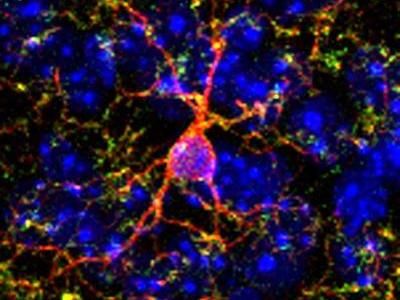From heroin addiction to alcohol-related problems
Methadone programs and long-term therapy using other opioids evidently work. People addicted to heroin consume less heroin, cocaine and even alcohol at the beginning of the treatment. As a long-term study conducted by the University Psychiatric Hospital and the University of Zurich reveals, however, the alcohol consumption among these patients has increased considerably since the 1990s.
Around 3,000 heroin addicts currently receive opioids such as methadone, buprenorphine or morphine as part of their treatment in the Canton of Zurich. The number of these so-called substitution treatments has remained constant since their introduction in the 1990s. Long-term courses of therapy with methadone or other opioids evidently reduce the consumption of illegal drugs among patients addicted to heroin. Although the beginning of this kind of treatment also leads to a reduction in the consumption of alcohol, more patients drink alcohol more frequently today than in previous decades. This is shown in a new long-term study conducted by researchers from the University Psychiatric Hospital and the University of Zurich.
Heroin and cocaine consumption markedly reduced
The study includes data on nearly 9,000 patients with a heroin addiction who underwent substitution therapy in the Canton of Zurich between 1998 and 2014. They already consumed sustainably less heroin or cocaine – and somewhat less alcohol – from the beginning of the treatment. Moreover, the proportion of patients who consumed heroin frequently (at least five days per week) more than halved over the 17-year study period (from 14.4 to six percent), and the number of frequent cocaine consumers shrank from 8.5 to 4.9 percent. The results also demonstrate that the decrease in heroin consumption went hand in hand with an improved social situation for the patients.
Nearly one in four frequently consumes alcohol
“Alcohol consumption, on the other hand,” explains Marcus Herdener, study head and chief physician at the University Psychiatric Hospital, “increased during the study period.” Towards the end of the study, almost one in four patients (22.5%) frequently consumed alcohol. “It seems to mirror a general trend that this patient group drinks more alcohol,” says Herdener. As liver infections such as hepatitis B and C are also commonplace among people with opioid addiction, frequent alcohol consumption seriously jeopardizes the health of these ageing patients.
According to other studies, an increasing number of opioid-dependent people die from liver disease. The results of the Zurich study are significant: “They reveal that there is still a major therapeutic need for treatment with regard to frequent alcohol consumption,” Herdener concludes.
Original publication
Original publication
Marcus Herdener, Kenneth M. Dürsteler, Erich Seifritz, and Carlos Nordt; "Changes in substance use in patients receiving opioid substitution therapy and resulting clinical challenges: a 17-year treatment case register analysis"; Lancet Psychiatry; 2017
Topics
Organizations
Other news from the department science

Get the life science industry in your inbox
By submitting this form you agree that LUMITOS AG will send you the newsletter(s) selected above by email. Your data will not be passed on to third parties. Your data will be stored and processed in accordance with our data protection regulations. LUMITOS may contact you by email for the purpose of advertising or market and opinion surveys. You can revoke your consent at any time without giving reasons to LUMITOS AG, Ernst-Augustin-Str. 2, 12489 Berlin, Germany or by e-mail at revoke@lumitos.com with effect for the future. In addition, each email contains a link to unsubscribe from the corresponding newsletter.

















































